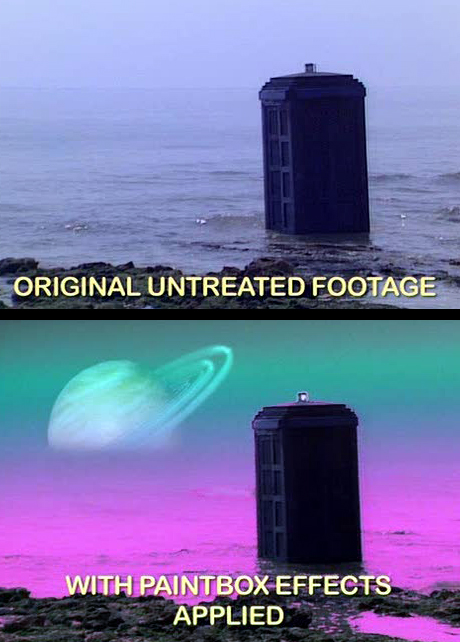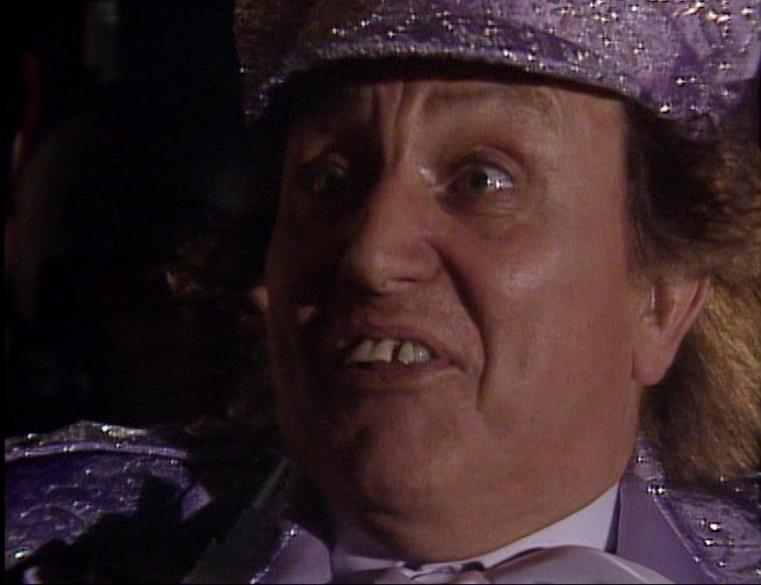Transmat:Doctor Who: Difference between revisions
No edit summary |
Eyacorkett (talk | contribs) mNo edit summary |
||
| (130 intermediate revisions by 8 users not shown) | |||
| Line 1: | Line 1: | ||
__NOTOC__ | __NOTOC__ | ||
{{template:transmat:{{PAGENAME}}}} | |||
<div id="tr-box-container" style="width:98%"> | |||
<div | <div id="tr-box-container" class="tr-box-cols" style=margin-top:40px> | ||
<div id="box-container" class="box-cols | <div class="tr-box one"> | ||
{{thead|The women who gave ''Doctor Who'' back to us}} | |||
<div class="box | [[file:JaneTranter.jpg|center|link=http://tardis.wikia.com/wiki/Transmat:Doctor_Who?file=David_Tennant_interviews_Doctor_Who_Producers_-_Doctor_Who_Confidential_-_BBC]] | ||
{{tcap|Click for video}} | |||
Think ''Doctor Who'' is just for boys? Don't you believe it. Not only was the show's [[Verity Lambert|very first producer]] a woman, but it would never have come back without the fierce advocacy of '''[[Jane Tranter]]''' and '''[[Julie Gardner]]'''. Considering her importance to ''Doctor Who'' it's somewhat ironic that Tranter's only on-screen ''credits'' are for ''[[Torchwood: Miracle Day]]''. But Gardner, her "partner in crime", is tied only with [[Russell T Davies]] as the most prolific producer in ''[[Doctor Who]]'' history. | |||
</div> | </div> | ||
<div class="tr-box two"> | |||
{{thead|Industrial action}} | |||
[[File:Paintbox.jpg|link=http://tardis.wikia.com/wiki/Transmat:Doctor_Who?file=BBC%2527s_Historic_Mainframe_Arrives%2521%2521_%2528Quantel_Paintbox_DPB_7000%2529_This_created_many_80s_programs%2521%2521]] | |||
{{tcap|Click for a video of a [[21st century]] geek as he takes delivery of one of the two Paintboxes used by the BBC in the 1980s}} | |||
The '''[[Quantel Paintbox]]''' was a graphics workstation that allowed ''[[Doctor Who]]'' to have a primitive form of [[colourist|colour grading]] in the [[1980s]]. To find out more about the "business of show", go to '''[[:category:production information]]''', where you can read about [[colour separation overlay]], [[low loader]]s, [[telerecording]]s, [[vidFIRE]], [[rostrum camera]]s, [[2" quad]] tape, [[Ealing Studios]] and tons more.</div> | |||
<div class="tr-box one"> | |||
{{thead|Surprising guest star}} | |||
{{surprising guest}} | |||
</div> | |||
<div class="tr-box two"> | |||
{{thead|Ex-Doctors never die, they just make audios}} | |||
The careers of the [[Fifth Doctor|Fifth]], [[Sixth Doctor|Sixth]], [[Seventh Doctor|Seventh]] and [[Eighth Doctor]]s are '''significantly''' longer [[Big Finish Doctor Who audio stories|in audio]] than on television. Check out their latest works at '''[[:category:{{CURRENTYEAR}} audio stories]]'''. | |||
</div> | |||
<div class="tr-box one"> | |||
{{thead|The relevance of comics}} | |||
Officially, only ''[[The Lodger (TV story)|The Lodger]]'' has been explicitly adapted from a comic strip — also called ''[[The Lodger (comic story)|The Lodger]]''. | |||
[[File:10MickeyFootball.jpg|center|link=http://tardis.wikia.com/wiki/Transmat:Doctor_Who?file=Craig_asks_The_Doctor_to_leave_-_Doctor_Who_-_BBC]] | |||
However, several stories have clearly taken material from comic strips — often those in ''[[Doctor Who Magazine]]''. ''[[The Shakespeare Code (TV story)|The Shakespeare Code]]'' contains a good amount of material from ''[[A Groatsworth of Wit (comic story)|A Groatsworth of Wit]]'', and the notion of the Doctor absorbing the [[time vortex]] in order to spare a [[companion]] was explored in both ''[[The Parting of the Ways (TV story)|The Parting of the Ways]]'' and ''[[The Flood (comic story)|The Flood]]''. | |||
</div> | |||
<div class="tr-box two"> | |||
{{thead|The first of the "money men"}} | |||
'''[[Donald Baverstock]]''' was the [[British Broadcasting Corporation|BBC]] executive who set the the wheels in motion that eventually led to the creation of ''[[Doctor Who]]''. Essentially the original commissioner of the programme, he hired [[Sydney Newman]] and later imposed a sense of financial responsibility upon [[producer]] [[Verity Lambert]]. | |||
But Baverstock wasn't the only '''[[:category:BBC executives|BBC executive]]''' to have a profound impact on the development of ''Doctor Who''. Make sure you read about [[Lorraine Heggessey]], [[Mark Thompson]], [[Danny Cohen]], [[George Entwistle]], [[Tony Hall]], [[Shaun Sutton]], [[Sydney Newman]] and others. </div> | |||
<div class="tr-box two"> | |||
{{thead|Things released on [[{{CURRENTDAY}} {{CURRENTMONTHNAME}} (releases)|{{CURRENTDAY}} {{CURRENTMONTHNAME}}]] }}{{:{{CURRENTDAY}} {{CURRENTMONTHNAME}} (releases)}} | |||
</div> | |||
<div class="tr-box one"> | |||
{{thead|Did you know…}} | |||
{{Doctor Who Wiki/DYK}} | |||
</div> | |||
<div class="tr-box three"> | |||
{{thead|[[{{CURRENTDAY}} {{CURRENTMONTHNAME}} (people)|{{CURRENTDAY}} {{CURRENTMONTHNAME}}]] births and deaths }}{{:{{CURRENTDAY}} {{CURRENTMONTHNAME}} (people)}} | |||
</div> | |||
{{#ifexpr: {{PAGESIZE:{{CURRENTDAY}} {{CURRENTMONTHNAME}} (production)|R}} < 440|| | |||
<div class="tr-box two"> | |||
{{thead|Production history for [[{{CURRENTDAY}} {{CURRENTMONTHNAME}} (production)|{{CURRENTDAY}} {{CURRENTMONTHNAME}}]] }}{{:{{CURRENTDAY}} {{CURRENTMONTHNAME}} (production)}} | |||
</div>}} | |||
</div> | |||
</div> | |||
{{reflist|2}} | |||
{{cache clearer}} | |||
Latest revision as of 08:24, 14 July 2024
Verity Lambert, the first producer of Doctor Who, was born in London on 27 November 1935. She served as producer from An Unearthly Child to Mission to the Unknown. Her work on Doctor Who was the first time she had been a full producer and was one of the first times a woman had such a role in television. Lambert died on 22 November 2007, the very day before the forty-fourth anniversary of the show's debut.
Think Doctor Who is just for boys? Don't you believe it. Not only was the show's very first producer a woman, but it would never have come back without the fierce advocacy of Jane Tranter and Julie Gardner. Considering her importance to Doctor Who it's somewhat ironic that Tranter's only on-screen credits are for Torchwood: Miracle Day. But Gardner, her "partner in crime", is tied only with Russell T Davies as the most prolific producer in Doctor Who history.
Though largely unknown to non-British audiences, Ken Dodd was a major star in the United Kingdom when cast to play the Tollmaster in the Seventh Doctor serial, Delta and the Bannermen. Find out more about the thousands of actors who have been on Doctor Who by exploring Doctor Who guest actors.
The careers of the Fifth, Sixth, Seventh and Eighth Doctors are significantly longer in audio than on television. Check out their latest works at category:2024 audio stories.
Officially, only The Lodger has been explicitly adapted from a comic strip — also called The Lodger.
However, several stories have clearly taken material from comic strips — often those in Doctor Who Magazine. The Shakespeare Code contains a good amount of material from A Groatsworth of Wit, and the notion of the Doctor absorbing the time vortex in order to spare a companion was explored in both The Parting of the Ways and The Flood.
Donald Baverstock was the BBC executive who set the the wheels in motion that eventually led to the creation of Doctor Who. Essentially the original commissioner of the programme, he hired Sydney Newman and later imposed a sense of financial responsibility upon producer Verity Lambert.
But Baverstock wasn't the only BBC executive to have a profound impact on the development of Doctor Who. Make sure you read about Lorraine Heggessey, Mark Thompson, Danny Cohen, George Entwistle, Tony Hall, Shaun Sutton, Sydney Newman and others.- 1964 - "Day of Reckoning" premiered on BBC1.
- 1970 - Part six of the TV Comic story Trial of Fire was published.
- 1985 - The novelisation of The Two Doctors was published by Target Books.
- 1991
- Timewyrm: Revelation was published by Virgin Books.
- Time Lord was published by Doctor Who Books.
- 1994 - Snakedance was released on VHS.
- 1996 - Bad Therapy, Cold Fusion and The Completely Useless Encyclopedia were published by Virgin Books.
- 1997 - Destiny of the Doctors was released by BBC Multimedia.
- 2007
- About Time 6 was published by Mad Norwegian Press.
- Planet of Evil was released on Region 4 DVD.
- Short Trips: The Ghosts of Christmas was published by Big Finish Productions.
- 2008
- The video games Black Hole and Clockwork Quest were released online.
- Top Trumps: Doctor Who was released for the Nintendo Wii.
- 2009 - Iris Wildthyme and the Claws of Santa was released by Big Finish.
- 2012 - DW12 3 was published by IDW Publishing.
- 2013
- The Death Pit was published by BBC Digital.
- DWFC 8 and DWFC SP 1 were published by Eaglemoss Publications Ltd.
- 2014 - Toby Hadoke's Who's Round 84 was released online.
- 2015 - Hell Bent premiered on BBC One, concluding Series 9.
- 2018
- The Master of Callous was released by Big Finish.
- The Dæmons was published by Obverse Books.
- 2019
- The audiobook of Dragonfire and Dalek Attack: Blockade & Other Stories were released by BBC Audio.
- Star Tales was published by BBC Books.
- 2021 - The Vanquishers premiered on BBC One, concluding Doctor Who: Flux.
- 2022 - The Blu-ray box set The Collection: Season 2 was released.
- 2023 - In the Bleak Midwinter was released by Big Finish.
- ... that famed American comic book artist, George Roussos, coloured most of the covers for Marvel Comics' 1984 run of Doctor Who?
- ... that Berenyi was a Time Lord who designed the assassination of John F. Kennedy? (PROSE: Untitled)
- ... that the Thousand Day War was a war fought at the end of the 21st century between humans and Ice Warriors? (PROSE: Legacy, GodEngine and others)
- ... that members of UNIT, under the leadership of "the Brig", put on Christmas pantomime productions of Aladdin? (PROSE: Timewyrm: Revelation, No Future)
- ... the noxmycota was an extra-terrestrial species of fungus which would have taken over the world in 1070 had not the Eighth Doctor and Izzy Sinclair repelled the threat? (PROSE: Illumination)
- 1938 - Actor Elaine Ives-Cameron was born.[1]
- 1953 - Actor Christopher Guard was born.[2]
- 1969 - Actor Catherine Tate was born.[3]
- 1972 - Actor Maurice Selwyn died.[4]
- 1992 - Actor Hilary Tindall died.[5]
- 1996 - Actor Keith James died.[6]
- 2001 - Director Michael Leeston-Smith died.[7]
- 2004 - Actor Neil Hallett died.[8]
- 2007 - Actor Christine Finn died.[9]
- 2012 - Actor Eric Kent died.[10]
- 2013 - Actor Barry Jackson died.[11]
- 1976 - Studio filming for The Robots of Death took place. (REF: Doctor Who The Handbook: The Fourth Doctor)
- 1977 - OB filming for The Invasion of Time took place. (REF: Doctor Who The Handbook: The Fourth Doctor)
- 1978 - Studio filming for The Armageddon Factor took place at BBC Television Centre studio 3. (REF: Doctor Who The Handbook: The Fourth Doctor)
- 1984 - Studio filming for Timelash took place. (REF: Doctor Who The Handbook: The Sixth Doctor)
- 2004 - Big Finish's UNIT audio story The Longest Night was recorded at the Moat Studios.
- 2011 - The third series of Big Finish's Doctor Who spin-off Iris Wildthyme was recorded at the Moat Studios.
- 2012 - The Big Finish audio story The Sleeping City was recorded at the Moat Studios.
- 2013 - The Big Finish audio stories The Paradox Planet and Legacy of Death were recorded.
- 2014 - Big Finish's The New Adventures of Bernice Summerfield audio anthology The Triumph of Sutekh was recorded.
- 2016 - Big Finish's audio anthology The Comic Strip Adaptations: Volume One was recorded at Audio Sorcery.
- 2017
- The first series of Big Finish's Doctor Who spin-off Jenny: The Doctor's Daughter was recorded at the Soundhouse.
- Big Finish's audio anthology The Third Doctor Adventures: Volume Four was recorded.
- 2019 - The second series of Big Finish's audio series The Robots was recorded.
- 2020 - Doctor Who: Lockdown! hosted a tweetalong of Thin Ice.
- 2021 - The BBC announced the title for the New Year's Day special as Eve of the Daleks.
- 2022 - Big Finish's The Paternoster Gang audio anthology Rogues Gallery was recorded.





